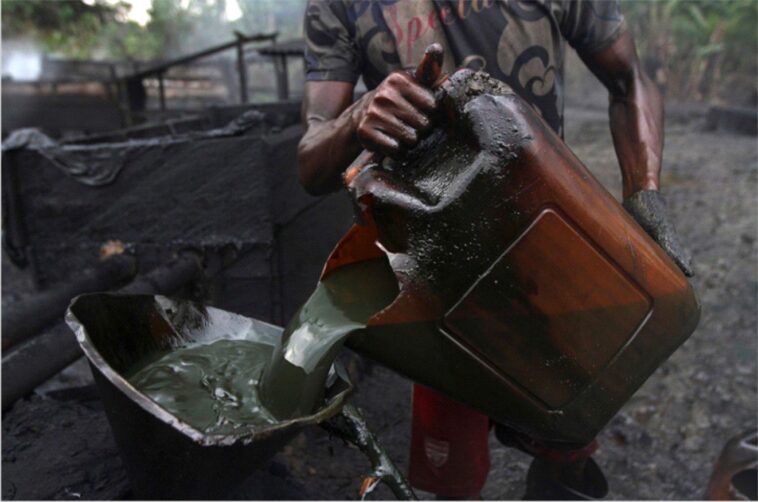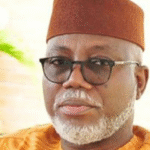Despite earning more than $741 billion from oil and gas sales in the past two decades, Nigeria remains one of the poorest countries in the world.
This revelation came from the Nigeria Extractive Industries Transparency Initiative (NEITI), which disclosed that between 1999 and 2020, the country raked in huge sums from its oil and gas sector.
The Executive Secretary of NEITI, Dr. Ogbonnaya Orji, made this known at a stakeholders’ engagement forum on the implementation of the Petroleum Industry Act (PIA) in Abuja.
According to him, NEITI has published 25 audit reports covering the same period, which have helped government recover billions of dollars from defaulting oil firms. He added that the agency is now implementing a five-year strategic plan (2022–2026) to deepen transparency and boost revenue generation.
“Our audits have not only led to recoveries for the government,” Orji said, “but have also paved the way for major reforms in the oil and gas industry.”
133 Million Nigerians Living in Poverty
While the country’s oil wealth continues to make headlines, a recent report by the National Bureau of Statistics (NBS) paints a grim picture of widespread poverty.
According to the report, 133 million Nigerians — about 63 percent of the population — are living in multidimensional poverty. Sokoto State topped the list with a staggering 91 percent poverty rate.
The findings, contained in the Nigeria Multidimensional Poverty Index (MPI) Survey, were compiled by the NBS in collaboration with NASSCO, UNDP, UNICEF and the Oxford Poverty and Human Development Initiative (OPHI).
The index measures poverty beyond income, using five indicators: health, education, living standard, employment, and security. It showed that rural poverty is far worse — with 72 percent of people in rural areas considered poor, compared to 42 percent in urban centres.
The hard facts behind the figures
The report also noted that nearly half of Nigeria’s 200 million people cook with wood, charcoal, or dung instead of clean energy sources.
About 65 percent of the poor — roughly 86 million people — live in the North, while 35 percent (47 million) live in the South.
Children bear the brunt of the crisis: two-thirds of Nigerians aged 0–17 years are poor, and 94 percent of out-of-school children live below the poverty line. In all, 29 percent of school-aged children are not attending school.
Hunger and hopelessness
The country’s worsening poverty situation is also reflected in the 2022 Global Hunger Index (GHI), where Nigeria ranked 103rd out of 121 countries, placing it among nations with a “serious” level of hunger.
The report, jointly produced by Welthungerhilfe and Concern Worldwide, gave Nigeria a hunger score of 27.3.
A separate analysis published by a national daily stated that every minute, six Nigerians fall into extreme poverty. The World Bank’s 2022 Poverty and Prosperity Report also ranked Nigeria among the countries contributing the most to global poverty, adding that over three million Nigerians join the ranks of the extremely poor each year.
Experts explain the paradox
Economic experts have described the situation as a clear case of “poverty in the midst of plenty.”
Dr. Chris Ofonyelu, an economist at Adekunle Ajasin University, Akungba-Akoko, said the figures are a reflection of poor planning and uneven wealth distribution.
“Even if the government’s earnings are accurate, they are not spread evenly across critical sectors of need,” he said. “That’s why the poverty level remains disturbingly high.”
Political economist, Dr. Bayo Fasunwon of the same institution also noted that despite earning huge oil revenues, Nigeria consistently ran budget deficits during those years and had to borrow to meet expenses.
According to him, misplaced priorities and mismanagement have been Nigeria’s undoing. “From 1999 to 2007, much of the country’s money went into elections, road contracts, subsidies, and later security spending,” he explained.
The leadership question
For Dr. Edamisan Ikuemonisan of the Department of Agricultural Economics, Adekunle Ajasin University, Nigeria’s major challenge lies in poor leadership.
“We have not been lucky to have leaders who understand how to manage a resource-rich country like ours,” he said. “That’s why poverty continues to grow despite our wealth.”
The way forward
Experts agree that the only way out of the poverty trap is for the government to reorganize its priorities, invest in productive sectors and make Nigerians more economically active.
They also call for stricter accountability in the oil and gas sector, massive investment in education, and the creation of sustainable jobs to expand the country’s Gross Domestic Product (GDP).
Until then, Nigeria’s story will remain one of abundant wealth coexisting with widespread poverty — a paradox that continues to mock the nation’s true potential.





